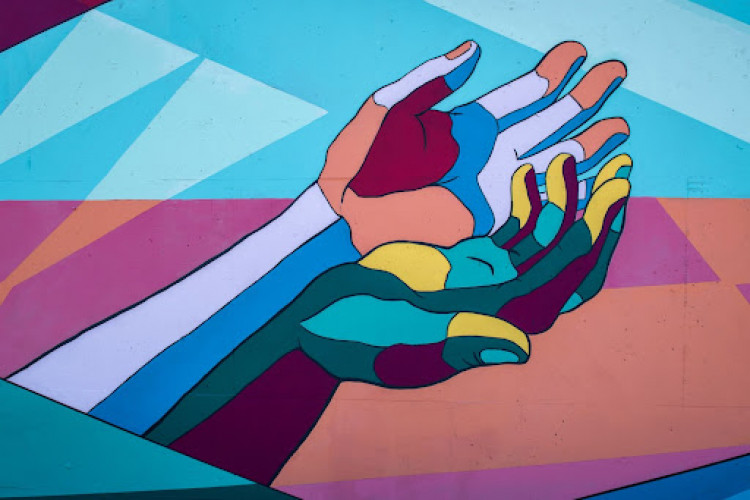
As We Cheer for Clash of Champions, Elitism Lurks in the Shadows
In this Open Column submission, Samantha Dewi Gayatri writes her concern on the trending show that glorifies academic achievements, where this “pursuit” may exacerbate social inequalities, turning education into a status symbol rather than a means for social mobility.
Words by Whiteboard Journal
In this very digital age, it is no wonder that many communities of various interests emerge on many platforms. From niche interests to hobbies, it goes to show that the possibility of finding a sense of belonging is boundless. However, one particular online community stood out to me, which is called “#StudyTwt.” This “Study” community is not only limited to one platform, but they also have a presence in TikTok, YouTube, and Instagram. At a glance, #StudyTwt likely aims to boost productivity and organization through shared tips as well as goal-achievement strategies through Community of Practice (CoP) (Meriem, 2022). While setting goals is commendable, a crucial question arises: How can an excessive focus on academic achievement and competition within #StudyTwt exacerbates social inequalities?
These programs often sensationalize competition between schools, turning education into a spectacle rather than a transformative experience
While #StudyTwt isn’t entirely consumed by cutthroat competition for academic achievement, it’s crucial to examine the role of neoliberalism in shaping this online space. Neoliberalism, with its emphasis on individual achievement and market forces, has arguably transformed education itself into a symbol of status. Earning a higher degree is increasingly seen as a gateway to elite social circles. This creates a dynamic where education loses its intrinsic value and becomes a means to an end—replicating the privileges associated with the elite.
Not to mention, we have seen viral shows such as “Clash of Champions” and “University War” as a hot topic on the Internet. While #StudyTwt raises concerns about educational elitism, it’s not the only culprit. Shows like those further exacerbate the issue at hand. These programs often sensationalize competition between schools, turning education into a spectacle rather than a transformative experience. They reinforce existing prestige hierarchies, placing undue pressure on students to gain admission to elite institutions. While these shows aim to celebrate Indonesian students as national “gems” who can bring glory to the country (“mengharumkan nama negara”), this narrative ultimately creates a toxic environment. Focusing solely on how academic success is defined by GPA and the reputation of their campus/institution instead of other aspects of education, e.g. fostering critical thinking, and collaboration, and empowering individuals to contribute to society in meaningful ways.
Amidst university or institution fanaticism, we need to re-evaluate the true purpose of education. Isn’t the true purpose of education supposed to lessen or diminish the gap between the elite and the marginalized?
Historically, education has been a powerful tool for social mobility, offering individuals from all backgrounds the chance to improve their lives. However, the rise of online communities like #StudyTwt, coupled with Indonesians’ growing emphasis on digital branding (to be fair, personal branding is all the rage these days), raises concerns that social media might exacerbate educational inequalities.
#StudyTwt, while offering tips and fostering a sense of community, can perpetuate educational elitism. This manifests in several ways. First, there’s an overemphasis on gaining admission to prestigious universities or programs. #StudyTwt contents might revolve around these institutions, creating pressure and anxiety for students who might not have access to such opportunities. Second, the community might promote expensive study materials or resources, unintentionally excluding students from lower socioeconomic backgrounds who can’t afford them. Finally, a culture of exclusivity can emerge, where only the high-performing students can feel like they “belong.” This reinforces the notion that academic achievement is the sole measure of worth, leaving others feeling ostracized.
Paulo Freire’s Pedagogy of the Oppressed (1968) offers a valuable framework that can counter this. Freire challenged the traditional “banking model” of education in his book—where teachers deposit knowledge into passive students. Freire instead emphasized developing critical consciousness, fostering dialogue and solidarity among learners, and creating shared resources to empower students from all backgrounds. This focus on critical thinking and social transformation aligns perfectly with the questions we need to ask about the true value of education in the #StudyTwt community. For instance, a relentless focus on expensive study materials or a culture that celebrates only top scorers within #StudyTwt could inadvertently reinforce educational elitism.
I am not writing this for the sake of ostracizing those in this particular community. Instead, I want to use this as a springboard to ask two critical questions:
1) What is the true value of education if people keep using it solely as a benchmark to earn a certain position?
2) Does this relentless pursuit of prestige overshadow the potential of education to empower individuals, foster critical thinking, and cultivate a desire to contribute to a more just society?
It’s fine if you want to be proud of what you have achieved, but as Freire said, education must be centered upon developing critically conscious, “humanized” learners who act to liberate themselves—and the world—from injustice, and to lead social transformation, either educating to support and maintain the status quo or helping to critique and change reality.
This is a call to action for us all. If we were to tackle the problems that are posed in present-day Indonesia, then why are we sticking to the ways of the elite? I am sure some platforms do try and promote accessible means of resources for education. So, why aren’t we focused on improving those instead of trying to “manifest” and “achieve” status for the sake of validation?












